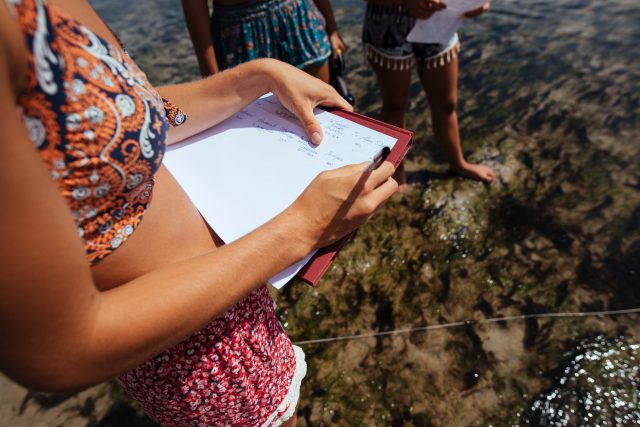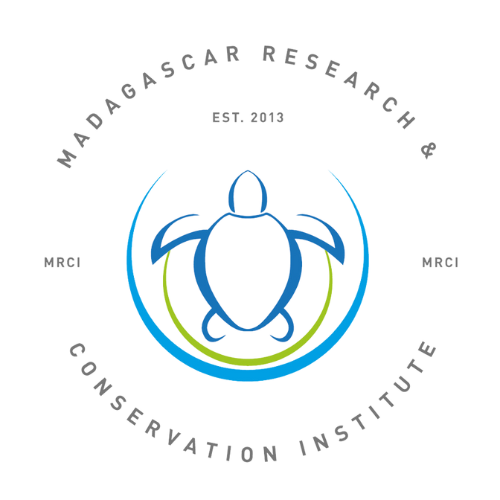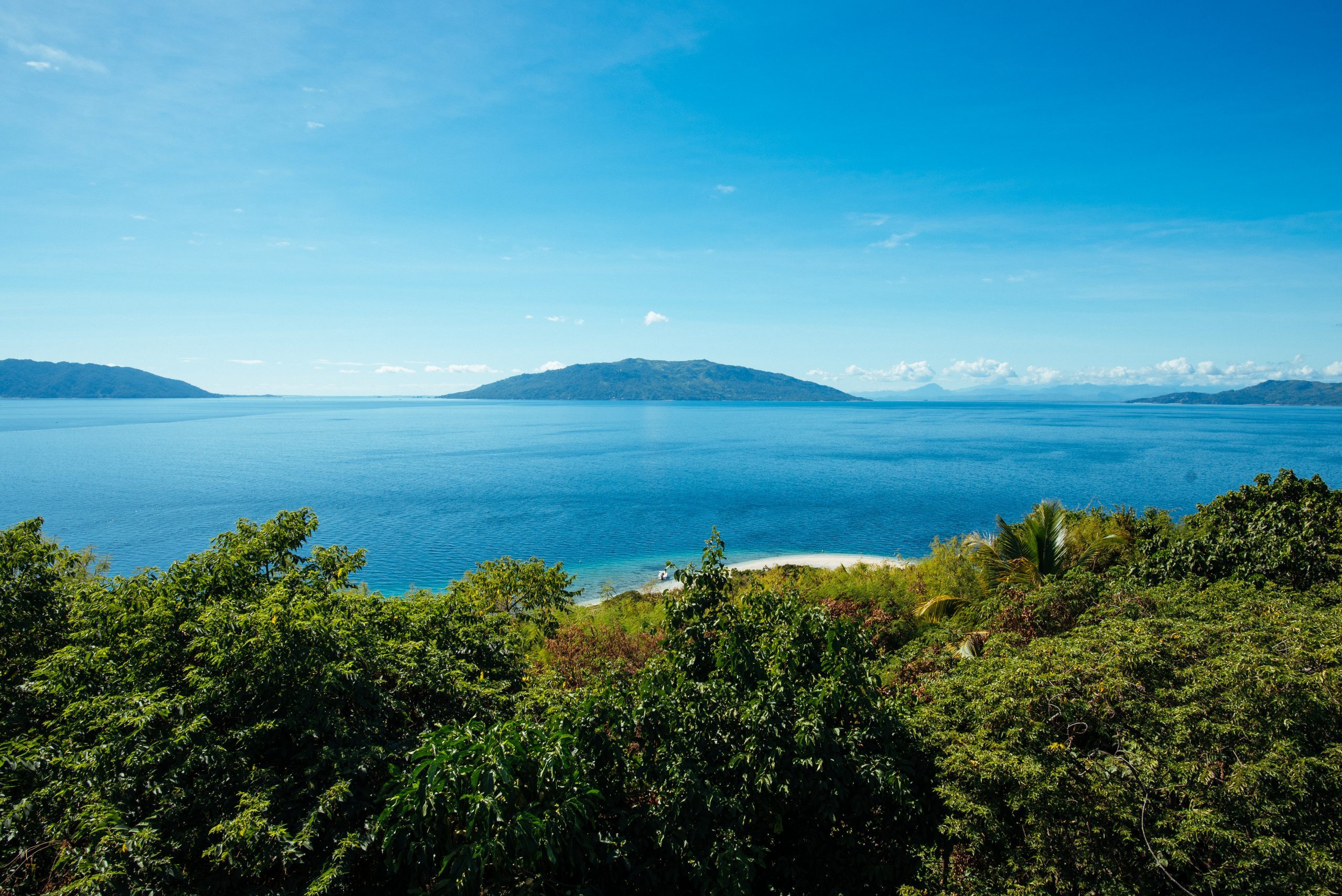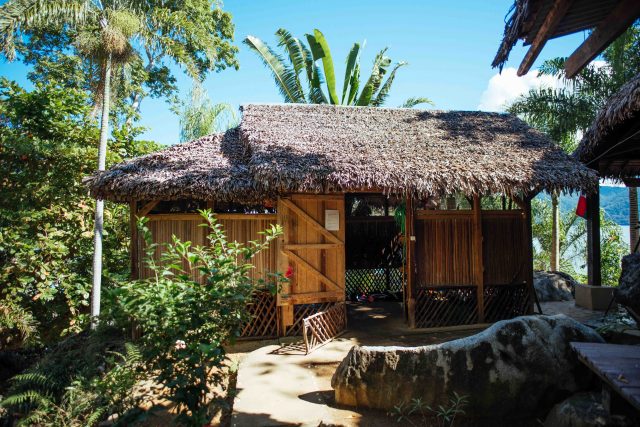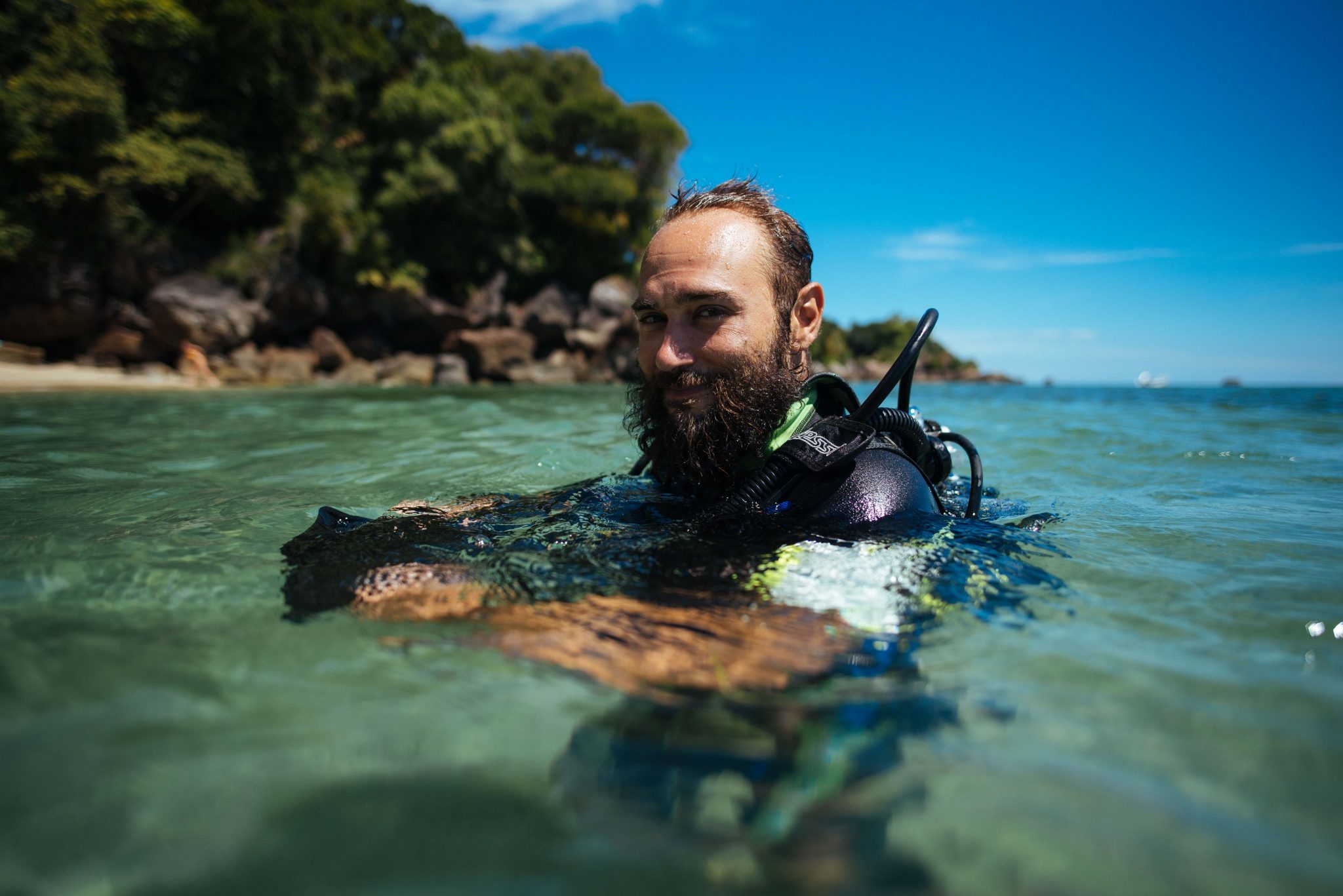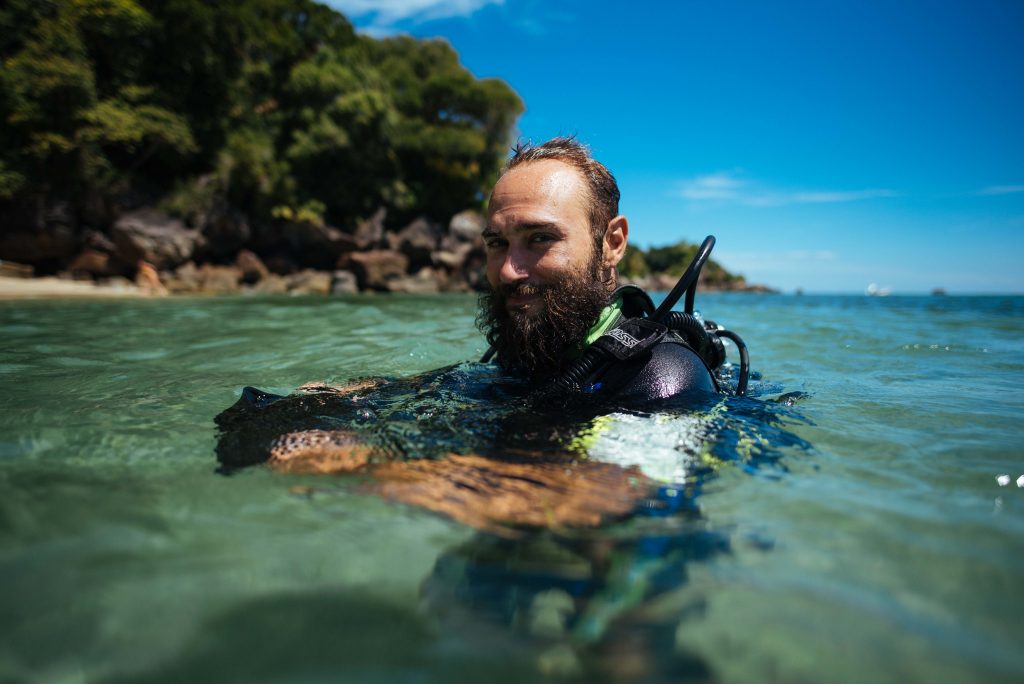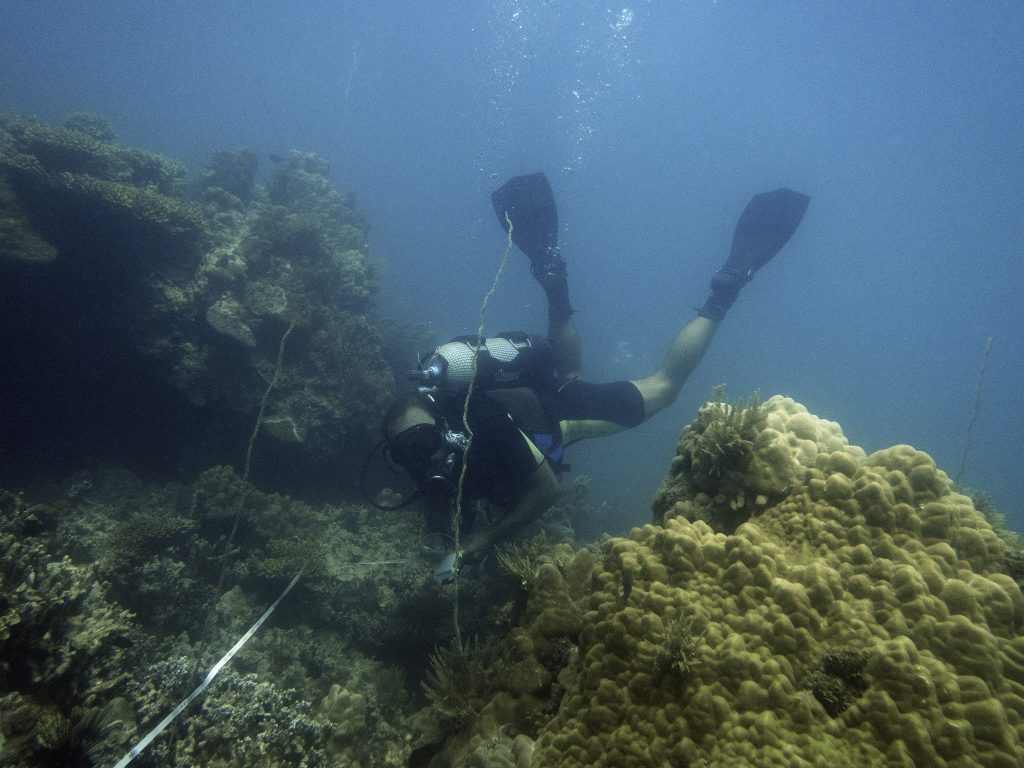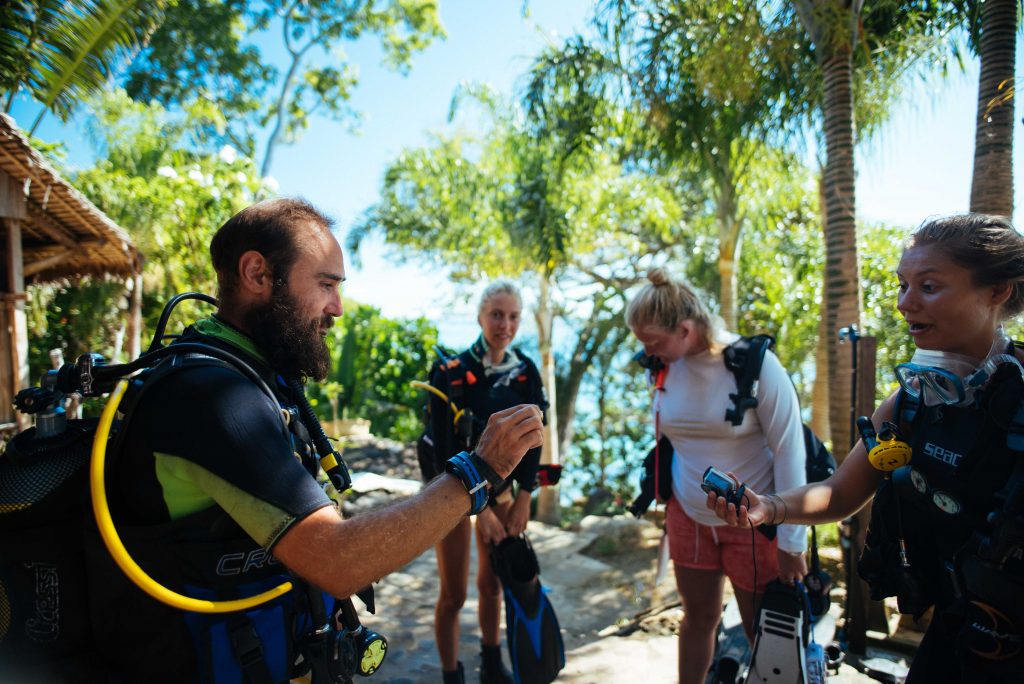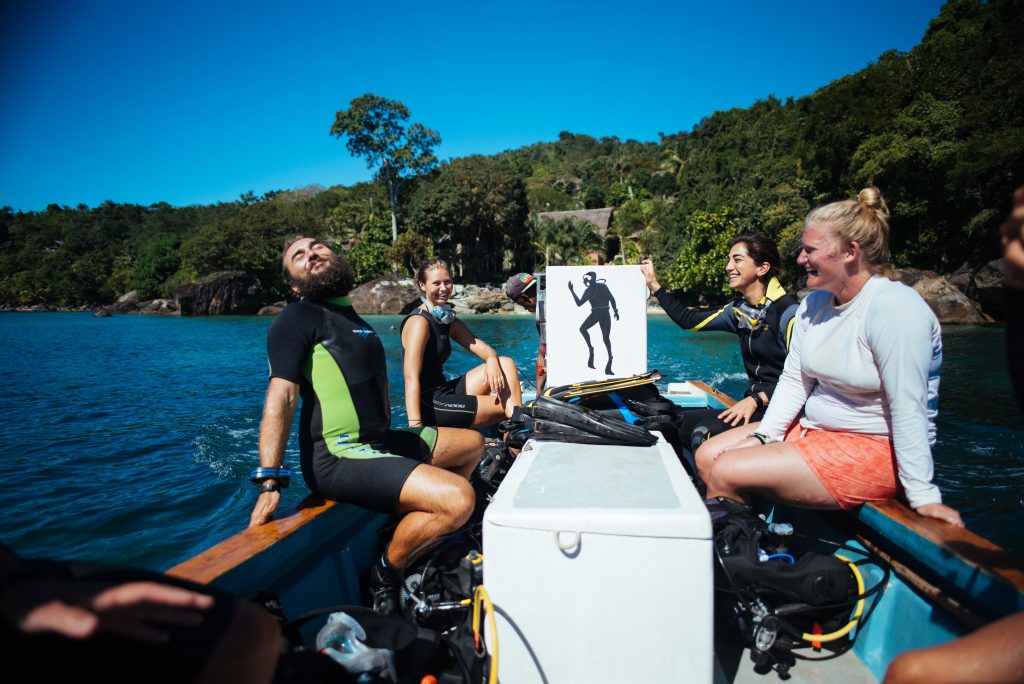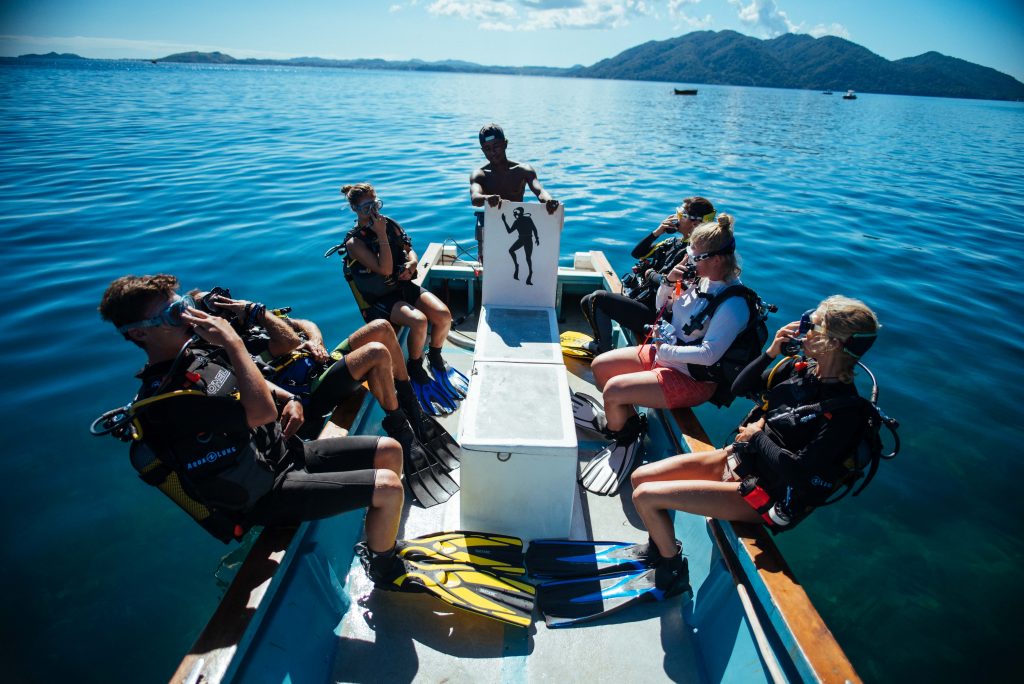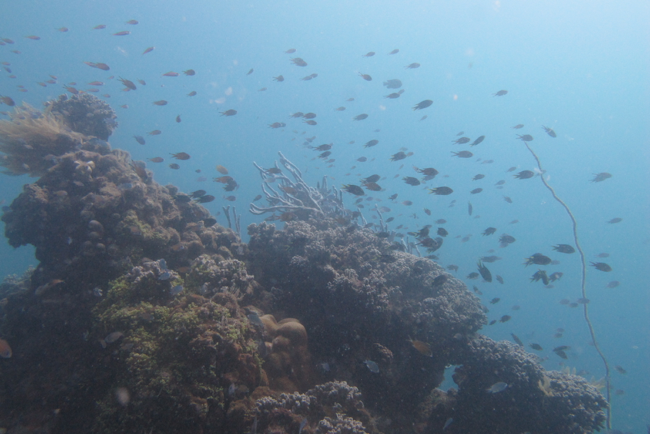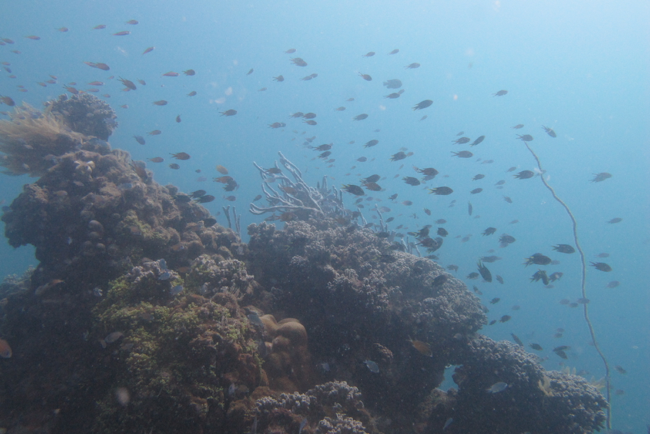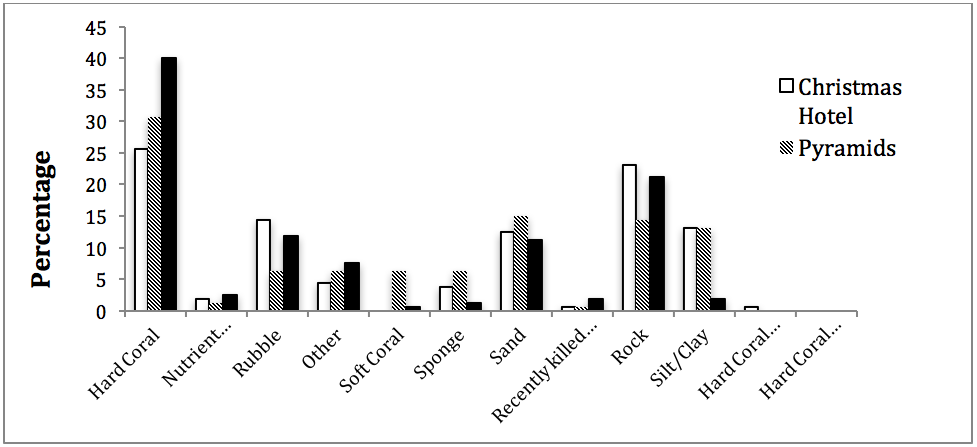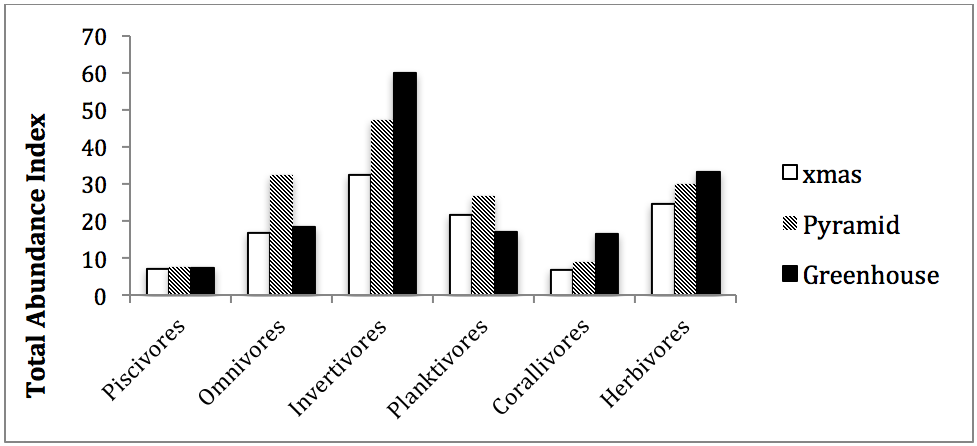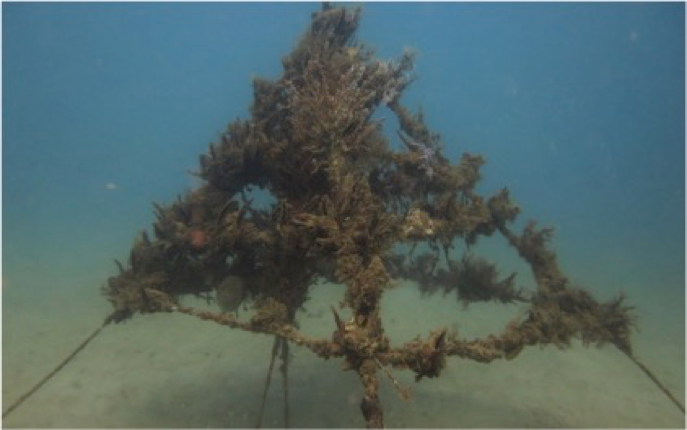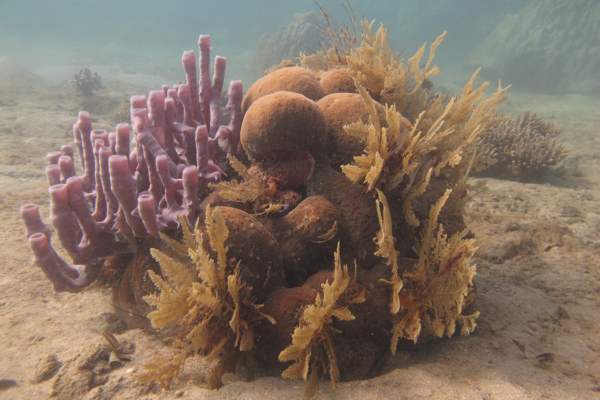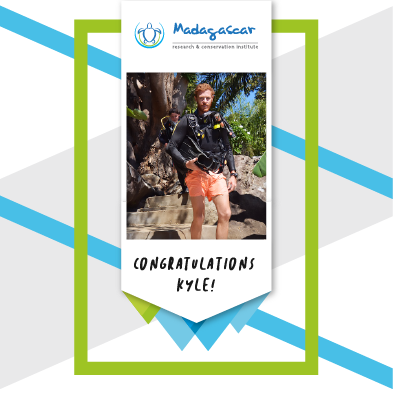Volunteering in Madagascar during a Pandemic
Author: Ava Graham
Date: April 2021
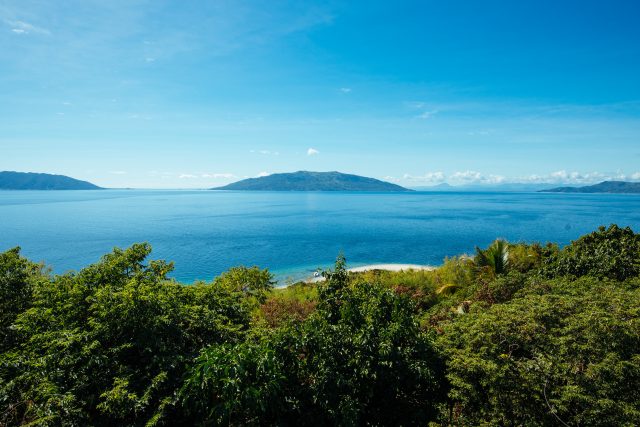
I arrived at MRCI’s hidden camp found on the beautiful shores of Nosy Komba, also known as Lemur Island. I was feeling excited and eager to learn and explore yet nervous to call this remote camp home for the upcoming 7 weeks. I soon realised that there was nothing to be frightened about. Everybody I met, from other volunteers to staff and locals, were kind and welcoming as well as great fun.
What surprised me most about volunteering was the endless possibilities to learn. In my first week, I found myself being familiarised with 184 species of fish, being lectured on marine conservation whilst also being taught both Malagasy and French. What may have seemed like a quiet camp, was in fact a community of like-minded ocean enthusiasts who were always willing to do and learn more.
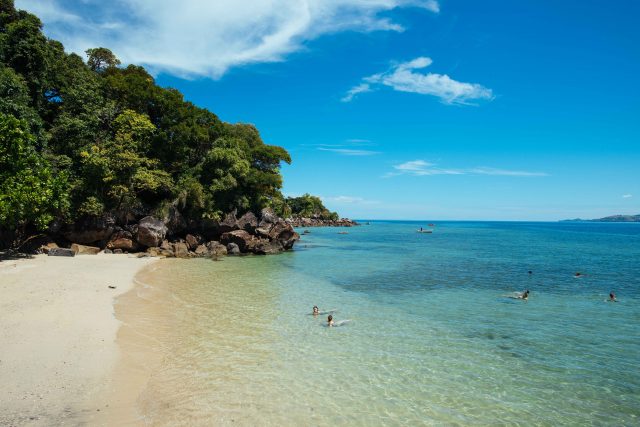
Since childhood, the ocean and everything that it holds has always interested me. Next year, I will study marine biology at university but I was eager to travel and gain new real-life experiences in the marine world first. I began volunteering on the coast of Kenya by helping to conserve the turtle populations through community education on the hazards of overfishing, protecting turtle nest sites and rehabilitating injured turtles.
This volunteering experience highlighted the importance of both education and habitat protection. I wanted to continue my conservation efforts by protecting our seas. The MRCI Marine Conservation Volunteering Programme gave me the opportunity to learn and teach in what seems like another world, Madagascar!
Marine Conservation Volunteering Program: My Learning Journey
When volunteering in the marine conservation program, you can pick which group of marine life you want to learn and survey. The choice is between benthic (sea floor), sessile (coral reefs) and active swimmers (fish). I chose active swimmers! From the onset, it was my priority to learn and identify 184 species of fish found within MRCI’s dive site, Turtle Towers.
Every weekday, I was given the opportunity to dive and identify new active swimmers through point-out tests under the water. Back at camp, I had guided study lessons to help me memorise the (what seemed never-ending) species list. During the week, I also partook in regular beach cleans which, despite the long hot walk, always felt rewarding after coming back with 2 or 3 sacks full of litter. We would later recycle all of the pollution into our own ‘eco-bricks’.
Picking up old plastic bottles, toothbrushes, flipflops and broken sunglasses opens your eyes to scale of waste we produce in our modern world. So much of what we use in our daily lives will eventually end up in our seas. My direct experience of collecting our universal waste has inspired me to actively take part in helping to stop plastic pollution. Through education and new policies to ban and limit plastic waste as well as investing in new plastic alternatives, we can change our flawed waste disposal system and help keep our ocean clean and healthy!
Learn More About Marine Conservation Volunteering
Follow us on Facebook & Instagram to keep updated daily!
